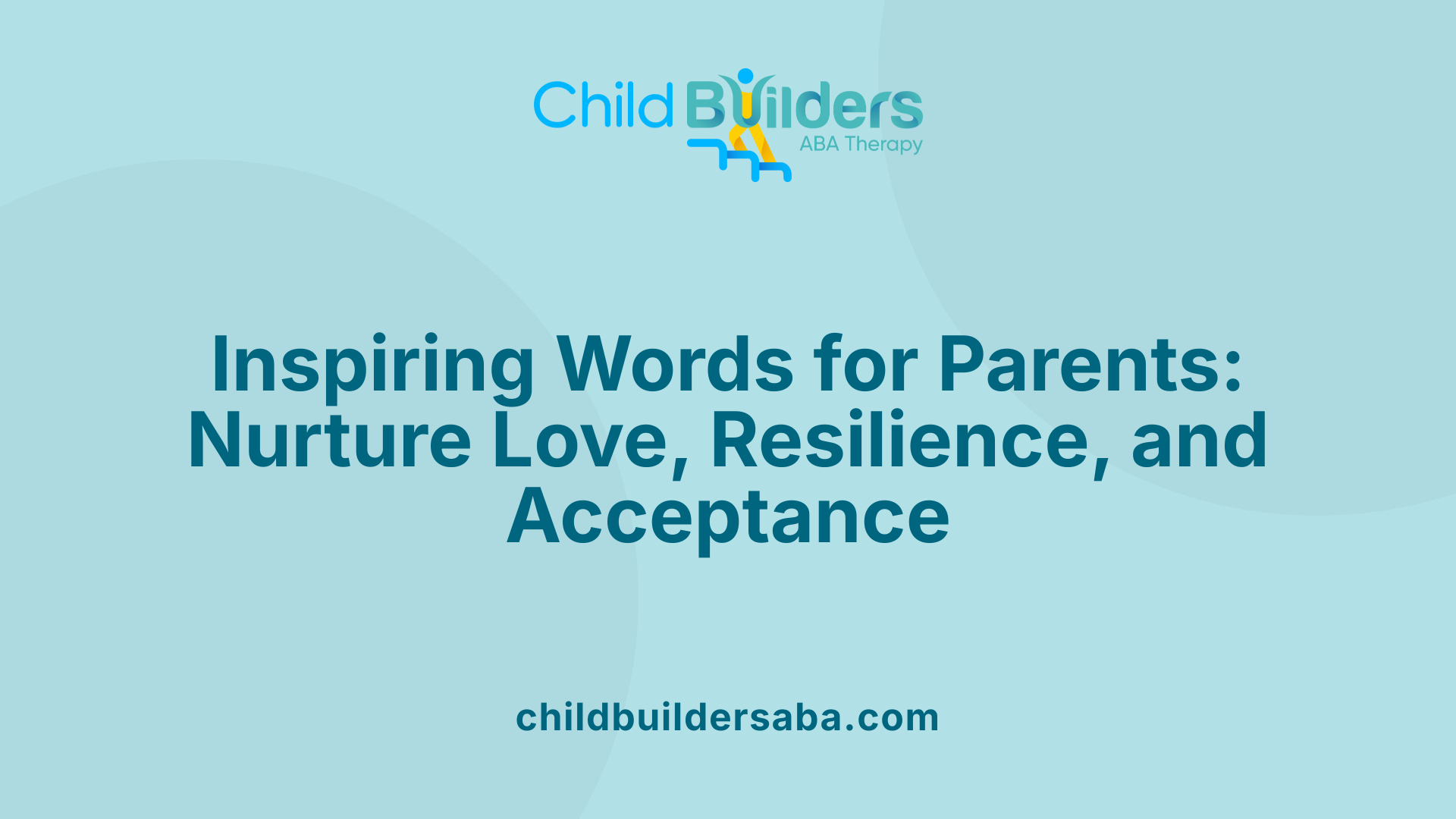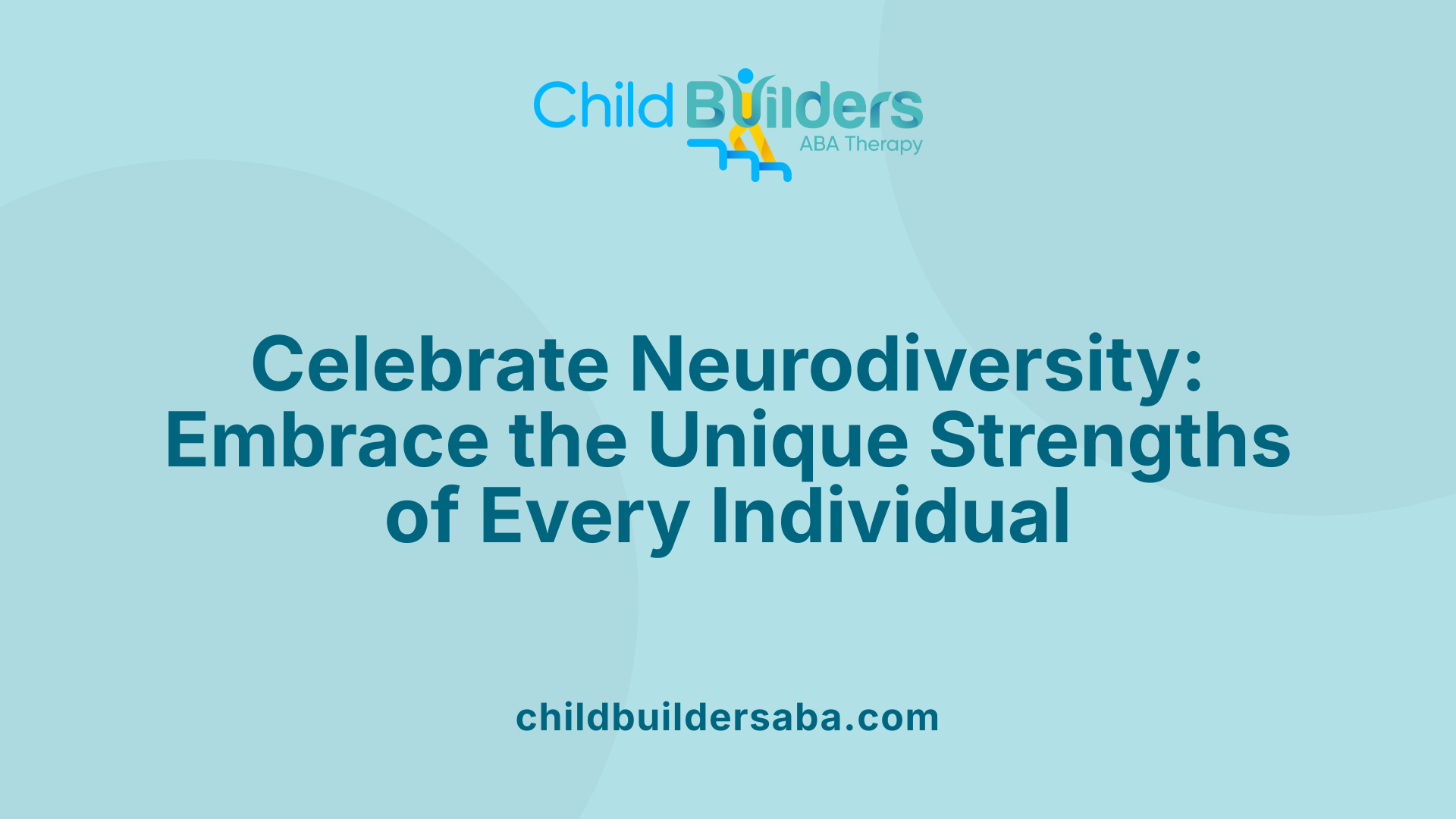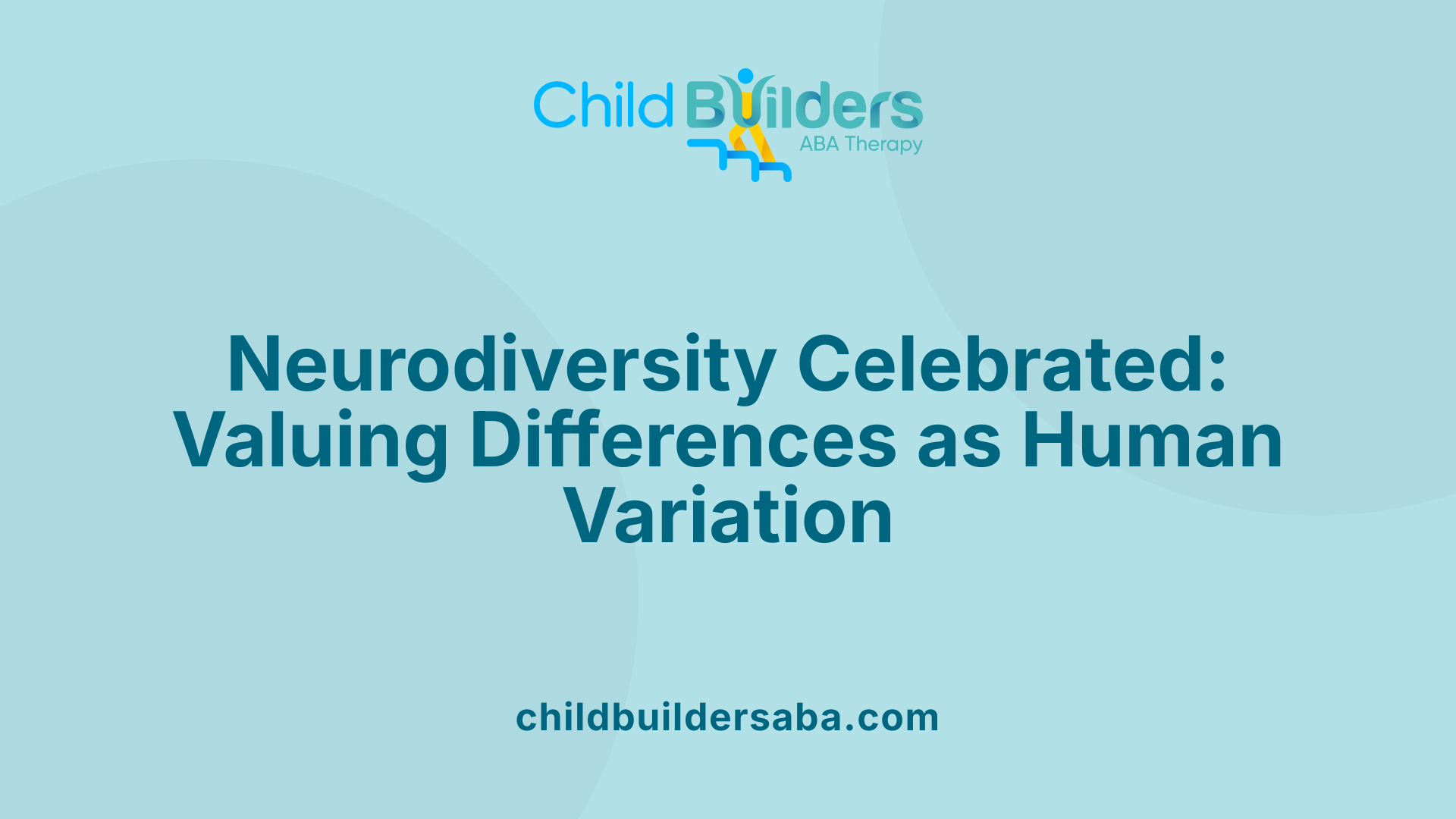Autism Quotes

Understanding Autism Through Powerful Quotes
Autism is a complex and diverse spectrum that touches millions of lives worldwide. While it presents unique challenges, it also offers remarkable strengths and perspectives. Quotes from autistic individuals, advocates, and professionals serve as powerful tools for inspiration, understanding, and acceptance. This article explores a curated collection of autism quotes, delving into their significance, and highlighting how words can foster a more inclusive and empathetic society.
Sources for Authentic Autism Wisdom and Inspiration
In the realm of autism awareness and understanding, authentic voices play a crucial role. Several trustworthy platforms serve as valuable sources for autism-related quotes, stories, and insights, fostering a richer appreciation of the diversity and strength within the autistic community.
One prominent resource is Yellow Busaba, which hosts a curated collection of personal stories, inspirational quotes, and narratives aimed at promoting acceptance and dispelling misconceptions about autism. The platform emphasizes the importance of genuine experiences shared directly by autistic individuals and allies, making it an essential stop for those seeking authentic perspectives.
Another influential resource is The Spectrum magazine. This publication features an array of personal stories, poetry, artwork, and articles created by autistic individuals themselves. Its focus on highlighting what autistic people can do—rather than what they cannot—helps to reshape societal perceptions and celebrates neurodiversity. The stories within the magazine underscore themes of resilience, individuality, and the importance of embracing differences.
Beyond individual websites and magazines, numerous autism advocacy organizations provide invaluable content. The Autism Society of America advocates for a society where everyone can reach their potential and offers stories, videos, and resources to support inclusion. Similarly, organizations like the National Autistic Society focus on promoting abilities and acceptance through various campaigns and publications.
Social media platforms run by autistic individuals themselves—such as blogs, YouTube channels, and Instagram accounts—are also vital sources for unfiltered and heartfelt insights. These digital spaces allow autistic voices to share their journeys, challenges, and successes, fostering community and understanding.
Sharing personal autism stories and quotes is essential because it enriches the public discourse with diverse experiences, helping to break down stereotypes and misconceptions. The importance of these authentic voices cannot be overstated, as they offer relatable, honest, and inspiring narratives that can motivate acceptance and support.
For those looking to explore further, searching with terms like ‘autism quotes,’ ‘autism awareness,’ ‘autistic stories,’ and ‘autism advocacy resources’ can lead to a broad array of platforms, articles, and multimedia content. These sources are instrumental in spreading awareness, promoting inclusivity, and honoring the individuality of every person on the spectrum.
In summary, trustworthy platforms such as Yellow Busaba, The Spectrum magazine, and dedicated advocacy organizations, along with social media communities, offer abundant authentic insights. They serve as bridges to understanding and amplifiers of the voices within the autism community, reminding us that every story matters and every perspective enriches societal awareness.
Inspirational Quotes for Parents and Caregivers

What are some inspiring autism quotes for parents and caregivers?
Parents and caregivers often seek words of encouragement and affirmation to navigate the challenges and celebrate the joys of raising a child with autism. Here are some powerful quotes that promote love, resilience, and acceptance:
"Autism is part of who I am, but it doesn't define me," a sentiment that encourages embracing individuality with pride. Notably, Temple Grandin, an autistic professor and advocate, emphasizes the importance of neurodiversity with her statement, "Different, not less," highlighting the value of every person's unique strengths.
Many quotes focus on viewing autism through a positive lens, stressing that it is a difference rather than a tragedy. Dr. Kerry Magro, an autism advocate and speaker, states, "Autism is one word attempting to describe millions of different stories," reminding us of the diversity within the autism community.
Acceptance and celebration of uniqueness are central themes in these quotes. Greta Thunberg reminds us that "Autism doesn’t come with an instruction manual. It comes with a family who will never give up," reinforcing the importance of unwavering support.
Incorporating these uplifting messages into daily routines can strengthen hope, patience, and community support for families. Many quotes serve to empower and motivate parents on their journey, emphasizing love, resilience, and the beauty of neurodiversity.
Overall, these inspiring words help foster an environment of understanding and acceptance, encouraging families to see the potential and strengths of their children beyond labels.
Below is a selection of particularly impactful quotes from prominent advocates:
| Quote | Speaker | Focus |
|---|---|---|
| "The world needs all kinds of minds." | Temple Grandin | Embracing neurodiversity |
| "Autism is not a tragedy. Ignorance is a tragedy." | Kerry Magro | Promoting awareness |
| "I am different, not less." | Temple Grandin | Celebrating individuality |
| "Autism offers a chance for us to glimpse an awe-filled vision of the world." | Dr. Colin Zimbleman | Unique perspectives |
| "Autism is part of my child, it’s not everything he is." | S.L. Coelho | Loving acceptance |
Reflecting on these quotes helps parents appreciate the importance of love, patience, and advocacy. Recognizing autism as part of human diversity fosters a community where every person can thrive and reach their full potential. The messages consistently reinforce that understanding and compassion are essential for nurturing resilient and confident individuals.
Promoting Awareness and Uplifting Messages

What are some powerful quotes about autism that promote awareness and understanding?
Many inspiring words from notable figures and individuals on the autism spectrum serve to challenge misconceptions, promote acceptance, and highlight the diversity of experiences within the autism community.
Temple Grandin, a renowned autistic advocate, famously stated, "I am different, not less," emphasizing the value of neurodiversity and individual strength. Her words encourage society to see autism not as a deficit but as a unique way of being.
Autistic individuals like Kerry Magro and Rachel Barcellona share perspectives that focus on personal growth and success. Kerry Magro notes, "Autism is not a tragedy. Ignorance is the tragedy," urging the need for societal understanding. Rachel Barcellona emphasizes that autism is part of what makes her special, stating, "Autism is what makes me unique."
Many quotes from advocates and autistic people reinforce the importance of acceptance and recognizing individual strengths. For example, Stephen Shore reminds us, "If you've met one person with autism, you've met one person with autism," highlighting the spectrum's diversity.
These declarations combat stereotypes by emphasizing that autism manifests differently in everyone and that each person’s journey is unique. They advocate for viewing autism through a lens of understanding, appreciation, and support.
Autism-related quotes also emphasize the need for societal change, advocating for compassion and inclusion. Kerry Magro adds, "Autism doesn’t come with an instruction manual. It comes with a family who will never give up," illustrating resilience and familial love.
By sharing these empowering messages, society can foster greater empathy, diminish stigma, and promote a more inclusive world where every person—regardless of their neurodiversity—can thrive.
How do these quotes challenge misconceptions and stereotypes?
These messages underline that autism is a spectrum of diverse experiences, not a monolithic condition to be fixed. They question the notion that autism is a tragedy or a defect, instead portraying it as a different way of experiencing the world.
For instance, Dr. Colin Zimbleman states, "Autism offers a chance for us to glimpse an awe-filled vision of the world that might otherwise pass us by," inviting society to appreciate the unique perspectives autistic individuals bring.
Other quotes reinforce the idea that success and happiness are achievable for people with autism when given understanding and support. They stress that strengths should be celebrated and that societal norms should adapt to include neurodiverse individuals.
In summary, these quotes serve as powerful tools to reshape perceptions, inspire acceptance, and champion the beautiful diversity within the autism community.
How Autistic Voices Promote Acceptance and Positivity
How can quotes from autistic individuals support acceptance and positive perspectives?
Quotes from autistic individuals are more than just words; they are powerful tools that can significantly influence societal attitudes towards autism. These personal expressions serve to highlight the strengths, resilience, and unique experiences of people on the spectrum, challenging many misconceptions.
Recognized figures like Temple Grandin, Kerry Magro, and Greta Thunberg share inspiring statements that frame autism as an essential part of identity, not a flaw or limitation. For instance, Temple Grandin famously said, "I am different, not less," emphasizing the importance of neurodiversity and encouraging self-acceptance. Kerry Magro reminds us that "Autism is not a tragedy. Ignorance is the tragedy," shifting focus from stigma to understanding.
Such quotes also promote societal acceptance by illustrating that individuals with autism possess diverse talents and perspectives. Stephen Shore’s words, "If you’ve met one person with autism, you’ve met one person with autism," highlight the spectrum’s variability, fostering appreciation for individuality.
Sharing these personal stories and quotes broadens awareness and helps dismantle stereotypes. They showcase success stories and the extraordinary potential often seen in autistic individuals, helping society see beyond limitations to possibilities.
Furthermore, these affirmations support the idea that acceptance—rather than trying to 'fix' autism—can unlock talent and enable people on the spectrum to thrive. Temple Grandin’s insight of igniting sparks in students’ minds underscores how understanding and gratitude for neurodiversity can lead to societal growth.
In sum, quotes from autistic individuals serve as catalysts for change by encouraging pride, understanding, and inclusion. They foster a cultural shift where differences are celebrated, and everyone is valued for their unique contributions, ultimately making communities more compassionate and accepting.
Below is a table summarizing influential quotes and their messages:
| Quote | Author | Main Message | Impact |
|---|---|---|---|
| "I am different, not less." | Temple Grandin | Self-acceptance and recognition of value | Promotes pride and confidence |
| "Autism is not a tragedy. Ignorance is the tragedy." | Kerry Magro | Challenging stereotypes | Encourages education and understanding |
| "If you’ve met one person with autism, you’ve met one person with autism." | Stephen Shore | Celebrates individual variability | Fosters appreciation for diversity |
| "Autism offers a chance for us to glimpse an awe-filled vision of the world." | Dr. Colin Zimbleman | Autism as a unique perspective | Advocates for viewing autism positively |
| "Autism is a difference, not a disease." | Chris Packham | Emphasizes diversity | Reinforces acceptance |
Sharing these stories helps break down barriers, inspire confidence in autistic individuals, and nurture a more inclusive society where differences are valued.
Language and Terminology in Autism Discussions
What terminology is preferred when referring to autism?
Language plays a crucial role in shaping perceptions and promoting respect when discussing autism. The preferred terminology often depends on personal and community preferences, but there is a notable trend toward use of identity-first language. Many individuals within the autism community prefer to describe themselves as “Autistic” or “Autistic person,” viewing autism as an integral part of their identity rather than a separate condition.
This perspective emphasizes neurodiversity—the idea that neurological differences are natural variations of human experience. Terms like “on the spectrum,” “autism spectrum disorder,” and simply “autism” are also widely accepted and used to foster understanding and acceptance.
On the other hand, some professionals and parents favor person-first language, such as “person with autism,” which aims to highlight the individual beyond their diagnosis. However, this approach can inadvertently suggest that autism is a separate entity and may contribute to stigmatization or separation from personal identity.
Recent research and advocacy highlight the importance of respectful communication—using terms that align with the preferences of autistic individuals themselves. This includes recognizing their right to self-identify and avoiding language that implies pity, blame, or deficiency.
Overall, respectful, stigma-free language supports a shift toward greater acceptance, emphasizing strengths and diversity. When in doubt, it’s best practice to ask individuals how they prefer to be described and to remain attentive to evolving language preferences within the community.
| Terminology Type | Preferred Use | Explanation |
|---|---|---|
| Identity-first | Autistic | Seen as affirming autism as part of identity, |
| Person-first | Person with autism | Focuses on the individual beyond the diagnosis, |
| Spectrum references | On the spectrum | Highlights the variability and diversity within autism |
Choosing words carefully helps foster respectful dialogue and reduces misconceptions about autism. It encourages society to recognize neurodiversity and honor the voices of autistic individuals themselves.
Embracing Neurodiversity and Celebrating Differences

What does neurodiversity mean, and how does it relate to autism?
Judy Singer, a pioneering sociologist and autism advocate, describes neurodiversity as human variation. This perspective emphasizes that neurological differences, including autism, are natural aspects of human diversity rather than flaws or disorders that need fixing. Recognizing neurodiversity means understanding that people with autism offer unique perspectives and talents that enrich society.
Autism is part of a broad spectrum, encompassing a wide range of abilities and experiences. Some autistic individuals excel in fields like art, science, and technology, highlighting the importance of valuing diverse ways of thinking and learning.
The concept of neurodiversity encourages inclusion and acceptance. It shifts the focus from fixing or curing autism toward creating supportive environments that recognize individual strengths. The Autism Self Advocacy Network, for example, advocates for respecting neurological differences as part of human variation—just as we value cultural or physical diversity.
Celebrating neurodiversity involves several essential elements:
- Appreciation of Individual Strengths: Recognizing talents and unique skills.
- Accommodation and Support: Building environments that adapt to diverse needs.
- Respect and Understanding: Promoting societal attitudes that see neurological differences as natural and valuable.
Understanding and embracing neurodiversity fosters a culture where everyone can thrive. It challenges outdated perceptions of autism as a flaw and instead celebrates it as part of the broad and beautiful tapestry of human identity. Dismantling misconceptions helps create a society that values each person for who they are—different, but equally important.
Moving Forward with Love and Acceptance
The power of words in shaping perceptions about autism cannot be overstated. Quotes from autistic individuals, advocates, and allies inspire us to see beyond stereotypes and appreciate the richness of neurodiversity. They remind us that autism is a fundamental part of human variation—an opportunity for society to evolve into a more inclusive, compassionate community. As we continue to share stories and celebrate strengths, let us champion acceptance, understanding, and love for all autistic people, recognizing that their perspectives and contributions are invaluable.
References
- 10 inspiring quotes from people with autism
- 20 Autism Awareness Month Quotes | Ensora Health
- 20 Inspiring Quotes About Autism Every Parent Must Read Today
- Quotes for World Autism Awareness Month - AngelSense
- 30 Quotes from 30 People with Autism - The Sequel!
- Autism Awareness Quotes: Top Inspirational Messages | Autism360
- Autism is one word attempting to describe millions of different stories
- 10 inspiring quotes from people with autism
























.jpg)












































































